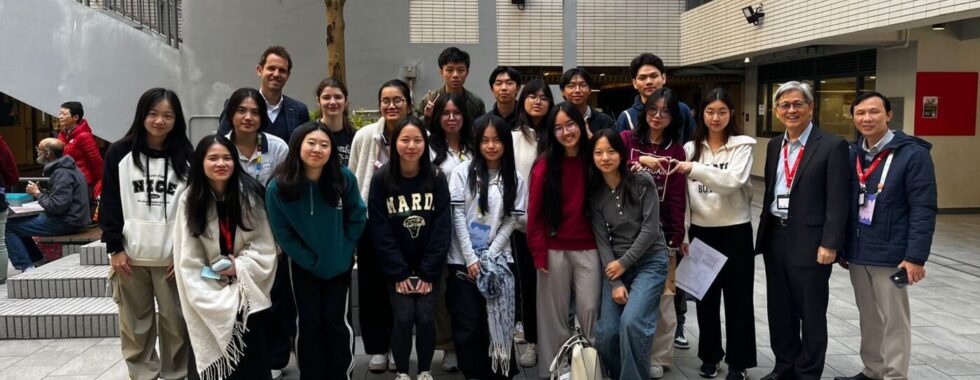Taking Action Through Global Partnerships
Island School has long been an advocate of exploring and developing partnerships with local, regional and global businesses, organisations and NGOs. We see these partnerships as hugely important in order to create authentic learning opportunities for our students. However, developing partnerships between schools is an area we see as being crucial, in particular when we look at this in support of the UN Sustainable Development Goals (SDGs).
Over the last 18 months, we have developed a strong partnership with Lawrence S. Ting School (LSTS) in Vietnam. This partnership has seen exchanges of students between both schools, allowing for an opportunity to foster collaboration, share resources and ideas, and come up with innovative solutions to key global and local issues that effect both schools.
Much of this partnership development has been led by our school’s Global Goals Council (GGC), who were integral in the planning and organisation of the recent visit by LSTS. Ava Au Yeung, who helps lead the GGC commented that ‘the partnership between our two schools provides our students with the opportunity for multicultural exchanges and the chance for us as a school to diversify our connections by building overseas bonds. This helps facilitate students’ pathways towards becoming global citizens.’
By working together as educational institutions we can pool our knowledge and expertise, enhancing our capacity to address some of the key global challenges we face today. These alliances not only empower our students with a broader perspective but also cultivate a sense of shared responsibility for creating a sustainable future. Part of LSTS’s recent visit was to work with The Alliance of Sustainable Schools to co-create cross-school projects that would look to support the UNSDGs.
Katrina Hon of the GGC commented that “it is important for us as a community to engage with the UNSDGs, as they serve as a framework that assists us in identifying solutions to address global challenges like environmental degradation at a local level. For example, communities in Hong Kong can tailor and modify their environmental initiatives to address their specific needs and challenges, all while contributing to global progress.”
We look forward to this partnership growing and developing over the next academic year to showcase not only the value of partnerships of this nature, but also the value our young people have in supporting key global initiatives as laid out by the United Nations.

